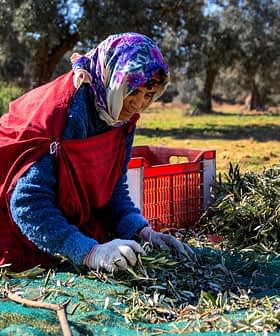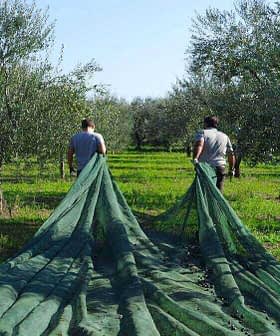Award-Winning Producers Optimistic As Olive Oil Culture Takes Root in Japan

Part of our continuing special coverage of the 2021 NYIOOC World Olive Oil Competition.
Seven extra virgin olive oils from Japan – one less than last year – were awarded at the 2021 NYIOOC World Olive Oil Competition.
Overall, five producers combined to win three Gold Awards and four Silver Awards at the world’s most prestigious olive oil quality competition.
From the 2021 NYIOOC, we can experience and taste other top-of-class olive oils and study their characteristics.
The winning producers told Olive Oil Times that the outlook for the upcoming years is bright as olive oil culture continues to spread throughout the country.
Extra virgin olive oil is becoming more common in Japanese households and restaurants, with families and chefs increasingly appreciating the healthy properties and unique flavors of high-quality olive oil.
See Also:The Best Olive Oils from JapanIn a country where the climate is often challenging for olive growers, producers reported excellent yields in 2020, both in terms of quantity and quality.
“Despite the weather, the 2020 olive harvest went well. I believe we were able to produce the delicious olive oil we were looking for,” Toyohiro Takao, the owner of Takao Nouen who earned a Silver Award for his Olive Hatake brand, told Olive Oil Times.
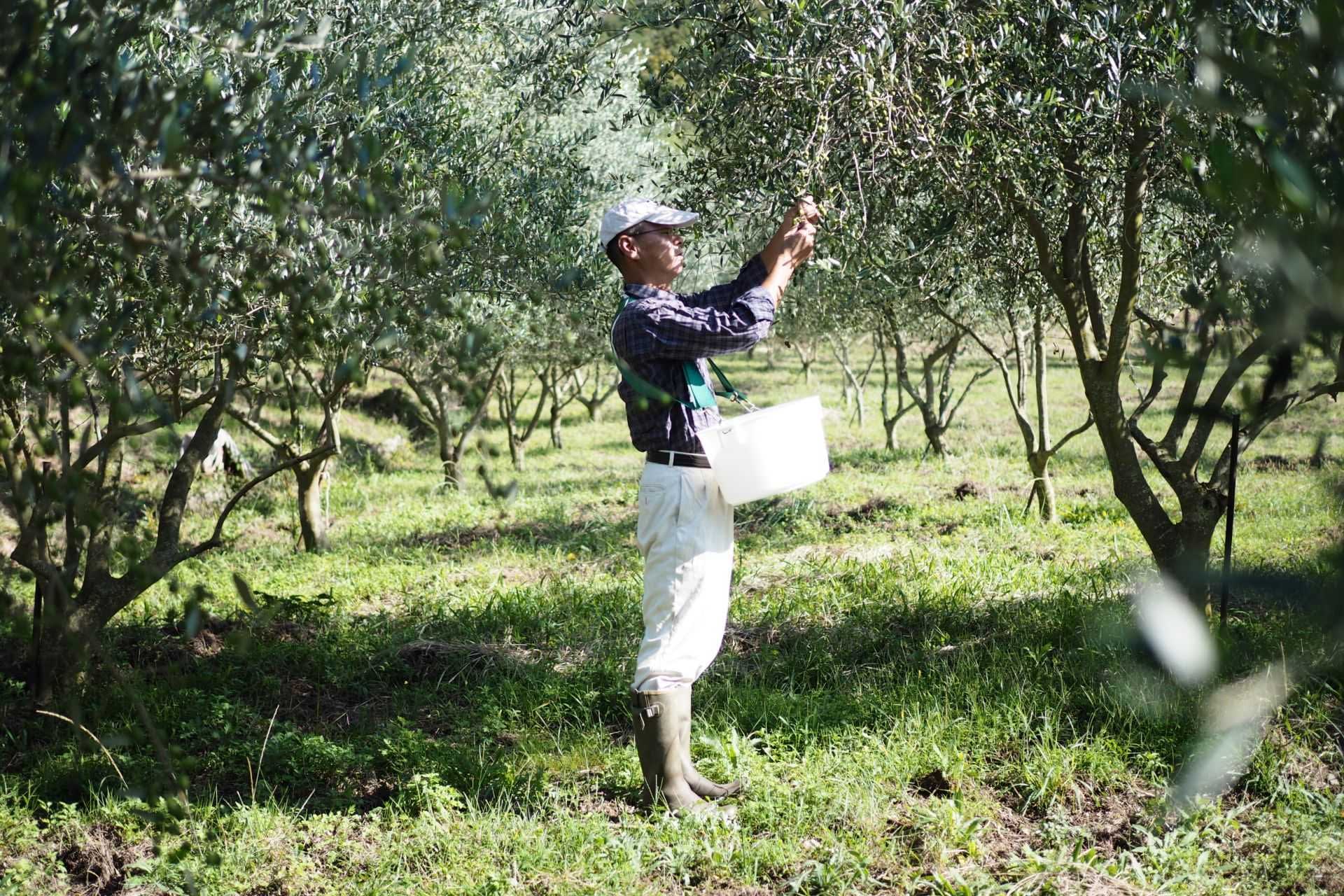
Toyohiro Takao.
“Japan’s climate is characterized by heavy rainfall, from spring to autumn. We are challenged by the hours of sunshine and the amount of rain,” he added. “For instance, the rainy season takes place in the time of flowering and pollination. I was worried about this, but last year it did not rain during the flowering season in my grove, and pollination is going well.”
Takao emphasized how the typhoon season, which runs from July to October, “is a season of many worries, as strong winds can cause trees to collapse and fruit to fall.”
“Regarding the weather, I feel that the summer is getting hotter,” Takao added. “We are worried about the lack of precipitation in mid-summer, but we are ready to irrigate the fields, and we are monitoring the olive trees and fruit.”
In such an environment, he believes that the secret to produce award-winning olive oil is by focusing on growing healthy trees.
“That is how we obtain beautiful fruits, the oil of which is extracted quickly after harvesting and filtered immediately after that, with all of these operations taking place at controlled temperatures,” he said.
Along with plenty of other Japanese producers, Takao said that olive oil’s popularity is growing rapidly in Japan.
“The use of olive oil in the home is increasing,” Takao said. “The amount of olive oil sold in food stores is increasing. Imports are also on the rise. However, since last year, we have been receiving orders from sushi restaurants, soba noodle restaurants, tempura restaurants, kappo restaurants and other Japanese restaurants.”
With three Gold Awards in the last three editions of the NYIOOC, the Agri Olive Shodoshima Company once again claimed top honors at the competition with its medium blend.
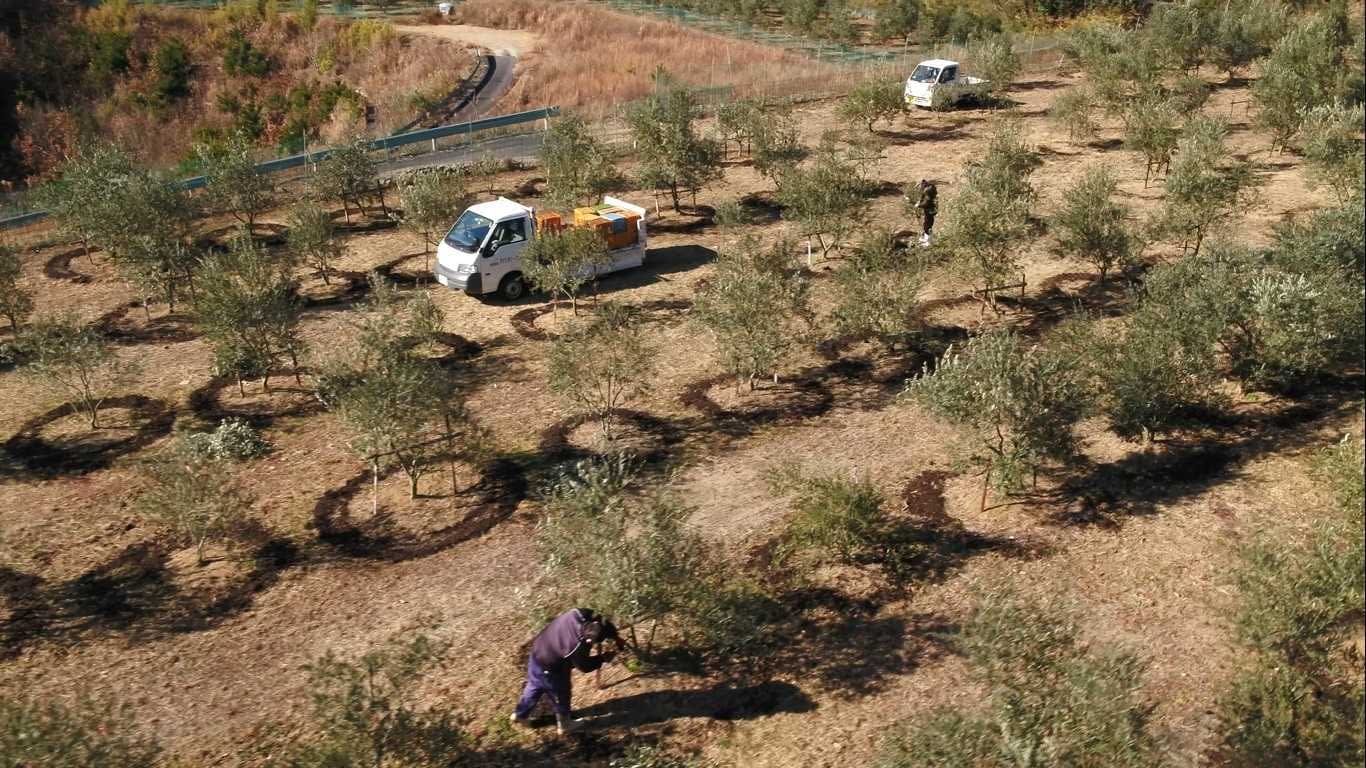
Photo: Agri Olive Shodoshima
Unlike other producers in Japan, Agri Olive Shodoshima’s olive groves are favorably influenced by the unique climate of Shodoshima Island, which closely resembles that of the Mediterranean. The island’s ideal conditions are attributed to it being the cradle of Japan’s first olive growing operations.
“We do have our challenges,” Nobuyuki Hiraiwa, the company’s president, told Olive Oil Times. “Due to the island’s remote location, the productive population is small, and it is difficult to secure workers for farming.”
“On top of that, only a fraction of the island is flat land, so we count on a limited area for olive cultivation,” he added.
The company has two decades of experience growing olives, including some of the most renowned Mediterranean cultivars, such as Lucca, Manzanillo, Nevadillo Blanco, Arbequina and Kalamata.
The blend that won the 2021 NYIOCC judges’ approval comprised Mission, Manzanillo, Lucca and Nevadillo Negro olives.
“The quality of our olive oil depends on the right choice of the fruits, their ripeness and the timing of the transformation and filtering operations, which are carried out in a low-temperature environment immediately after harvesting,” Hiraiwa said.
Among the secrets employed by Hiraiwa to produce his award-winning olive oil is to “apply olive water and compost made by fermenting the pruned olive branches to our orchards, which is also one of the few methods of circular olive farming in Japan.”
With more than 70 years of olive growing experience, Nippon Olive Company once again won two Gold Awards at the NYIOOC for its Ushimado and its Ushimado Superior brands.
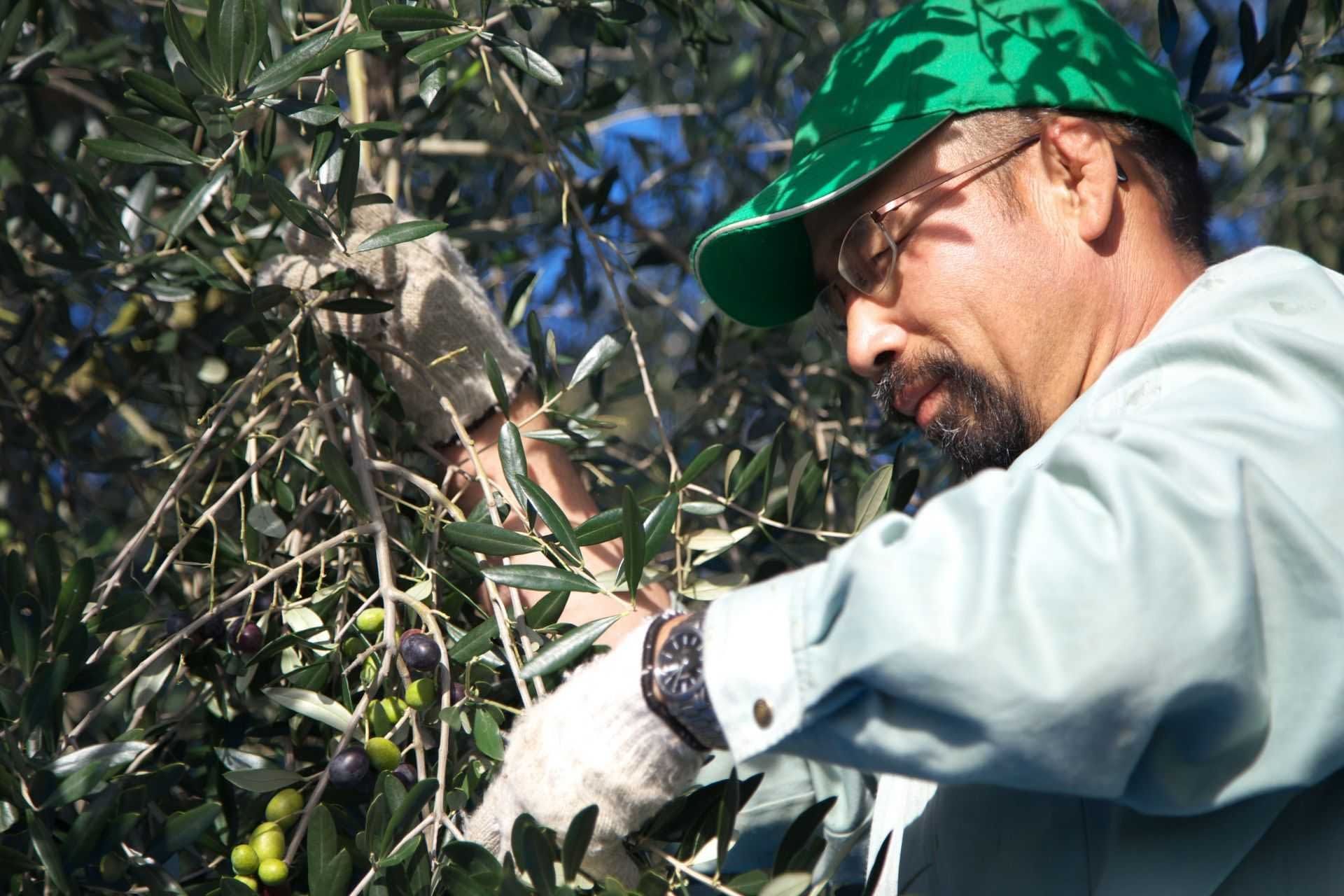
Photo: Nippon Olive Company
“I believe Ushimado Superior has great potential on the international market,” Kenichi Nakagawa, head of olive oil research at the company, told Olive Oil Times.
“Our work is exclusively focused on quality, and that is true for the whole production process, from olive growing to harvesting, and the choice of the rightly-ripened fruits to the process of transformation, which is constantly updated,” he added.
Similar to Agri Olive Shodoshima, the Nippon Olive Company specializes in cultivating traditional Mediterranean varieties.
Ushimado Superior is a medium blend of Mission, Nevadillo Blanco and Lucca olives, while Ushimado is a medium blend of Arbequina, Mission, Manzanillo, Lucca and Nevadillo Blanco olives.
“We grow several cultivars, and that allows us to choose the right harvesting moment for each one of them,” Nakagawa said, adding that this is no easy task due to Japan’s unique climate.
“Last year, we had too much rainfall, so it was not easy to harvest; there are times when rainfall heavily conditions harvesting times,” Nakagawa said. “Excessive rainfall may also influence the final taste of olive oil.”
For Nakagawa and the rest of the team behind the Nippon Olive Company, winning awards at the NYIOOC has a profound impact on the brand.
“We do not feel like we are challenging other companies; we feel that the NYIOOC is a competition that can help us make an even better olive oil,” Nakagawa said. “When we look at the NYIOOC results, we understand that our work with our best olive oils are heading in the right direction.”
“From the 2021 NYIOOC, we can experience and taste other top-of-class olive oils and study their characteristics,” he added.
Along with learning from their mistakes and successes, the competition has also helped the Nippon Olive Company expand its customer base.
“And that happens because olive oil is spreading in the Japanese home and influencing Japanese lifestyle, becoming more and more popular for its healthy qualities,” Nakagawa said.
Japan’s other multi-award-winning producer was Crea Farm, which earned two Silver Awards for a monovarietal Koroneiki and Coratina.
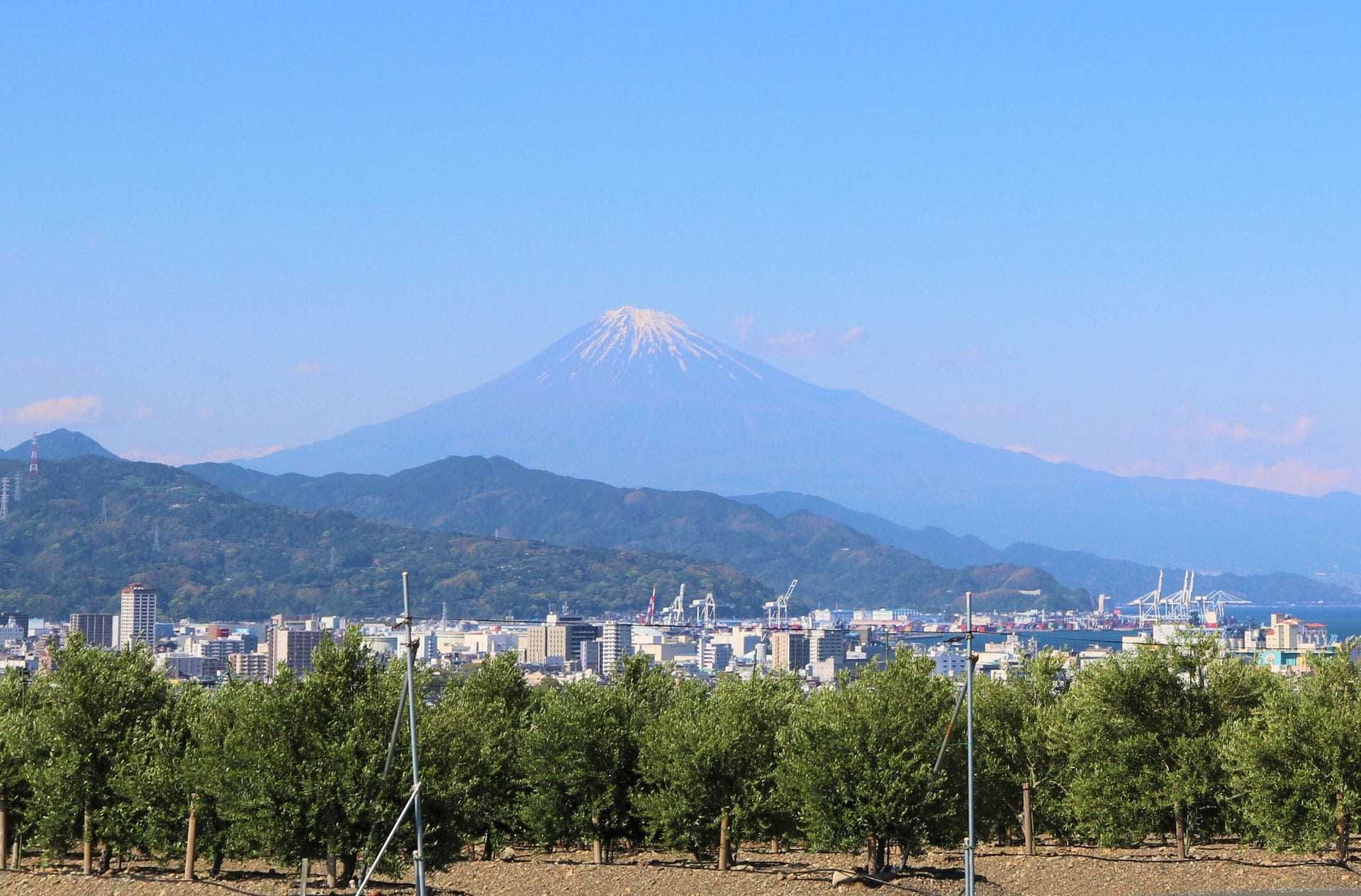
Crea Farm olive groves. OOT Archive.
The company has now been awarded at the NYIOOC for three consecutive years, which makes the producers especially proud due to the particular challenges faced by the trees, which grow in the shadow of Mount Fuji.
“When I started growing olives, I was instructed to cultivate robust root systems that could withstand the strong wind, heavy rain and typhoons,” Tatsuya Okumura, the company’s senior managing director, told Olive Oil Times.
“Comparing to traditional olive-growing countries, the weather here means heavier rainfall and typhoons from summer to autumn,” he added. “It has been several years since we began olive cultivation, and I think good results have been achieved.”
Okumura said that 2020 had been an excellent year for Crea Farm, in part due to the reduced number of typhoons that the area experienced.
“The volume of our yields has increased over the years,” Okumura said. “Still, climate change is here. I think that it is felt not only by olive growers but also by the general public living in the city.”
“I have done a business continuity plan because all I can do against natural threats is prediction and countermeasures,” he added.
Another challenge that Crea Farm had to take on in the early years of production was the choice of cultivars since not all olive varieties can adapt to such a harsh environment. Twelve Italian and Spanish varieties are at the heart of Crea Farm’s success.
“Looking at the growth and the yields, the varieties I have selected seem to have adapted to my land and the farming very well,” Okumura said. “On the other hand, there are some variations in growth in the newly planted areas.”
“I think it is necessary to establish a cultivation method that suits each growing area based on the different soil types,” he added.
His results at the NYIOOC and those of his compatriots also have Okumura feeling optimistic about the future of olive oil production in Japan.
“Due to the depth of interest in not only Western food but also Japanese food, the proportion of olive oil among imported oils has been the highest in the household oil and fat market for several years,” he said.
“I believe that this trend will continue in the future,” Okumura concluded. “In addition to using olive oil as it is, product development such as fish and vegetables packed in olive oil are also getting more attention.”

